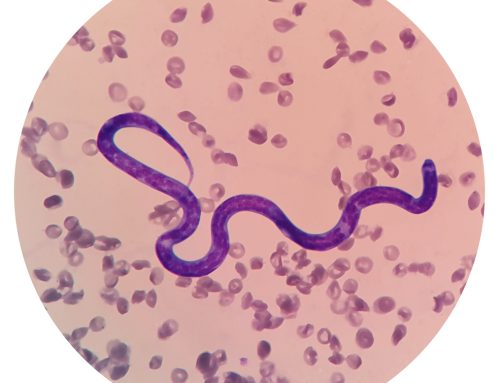Pet owners may be confused about heartworm disease, and they need to understand this disease’s transmission, signs, treatment, and prevention. Many myths abound about heartworm disease, making the subject more confusing, but our Twin Maples Veterinary Hospital team is here to set the story straight.
Myth #1: Only dogs can get heartworm disease
Truth: While dogs and wild canines are heartworms’ preferred hosts, any mammal can contract these insidious parasites. Fortunately, heartworms do not live as long in human and other mammal hosts as they do in dogs, but they can still cause unfavorable hosts to suffer. For example, if cats contract heartworm disease, they can show a wide range of signs that include asthma-like problems, vomiting, difficulty walking, or sudden collapse or death. So, although your dog is more likely to develop heartworm disease because of their increased exposure to mosquitoes and because they are the parasite’s preferred host, your cat is also at risk for contracting this serious illness.
Myth #2: Pets are safe from heartworm disease in the winter
Truth: Although bitterly cold temperatures can kill heartworm-transmitting mosquitoes, your pet’s heartworm disease risk continues in colder weather, because mosquitoes can head into your garage or your home to wait out the winter, feasting on your pet to survive. In addition, mosquitoes will emerge from hiding to find their next meal if the temperature rises above 35 degrees, which puts your pet at risk for heartworm disease.
Mosquitoes are not only a year-round threat—pet owners should be aware that heartworm disease can be tricky. Most heartworm prevention medicines work by killing the microfilariae (i.e., heartworm larvae) that a mosquito’s bite injects in your pet. Essentially, heartworm prevention medicine is a monthly bloodstream dewormer rather than an intestinal tract dewormer. If you skip your pet’s heartworm preventive dose in January because the temperatures are so cold, you are leaving your pet open to infection that may have started developing during those few warm December days, which underscores the importance of giving heartworm prevention year-round.
Myth #3: Heartworm disease is no big deal
Truth: Untreated heartworm disease is a serious, life-threatening condition. And, while the microfilariae are maturing as they migrate to the blood vessels around the heart and lungs, they are severely and permanently damaging your pet’s body. The scar tissue heartworms cause remains after heartworm treatment, and can lead to your pet’s lifelong respiratory and cardiac issues.
Myth #4: Annual testing is unnecessary because my pet shows no heartworm disease signs
Truth: Heartworm disease can take months or years to cause apparent illness signs. Microfilariae take about six months to mature, although they can cause issues as they grow. Pets often compensate well if they are infected with a small worm burden, but as the worms grow and reproduce—causing more damage—signs can become apparent.
Your dog’s first heartworm disease signs can include a mild, persistent cough and exercise intolerance. As the disease progresses, your dog may display a reduced appetite, mild exercise fatigue, and a worsening cough. With time, heart failure can develop, causing the abdomen to swell with fluid.
Cats’ first heartworm disease signs may be sudden death, which makes their prevention especially important. Other heartworm disease signs in cats can include difficulty breathing, wheezing, coughing, problems walking, vomiting, and diarrhea.
Myth #5: Pets’ heartworm disease treatment is as easy as prevention

Truth: Monthly heartworm disease prevention can be as simple as giving your dog a tasty chew, or applying a liquid topical product to the back of your cat’s neck, but treating the disease is much more difficult. Dogs’ heartworm disease treatment consists of a series of lumbar muscle injections, which can cause nausea and discomfort. To ensure all the worms are killed off slowly enough to prevent side effects, three injections are typically administered—the first two 24 hours apart, and the third a month later. In addition, you must severely restrict your dog’s activity level by allowing them to go outside only to eliminate, and keeping them confined or quiet for a month after treatment. This treatment protocol is not ideal, but is highly effective. Unfortunately, no heartworm disease treatment has been approved for cats.
Heartworm disease is a serious condition that can affect your cat or dog, regardless of how much time they spend outdoors. Keep your furry pal safe from this mosquito-borne threat by ensuring they remain current on their heartworm prevention medicine. To ensure year-round protection without the risk of missing monthly doses, we recommend Proheart 12, which is an annual injection. Contact our Twin Maples Veterinary Hospital team to discuss the ideal heartworm preventive for your pet.









Leave A Comment